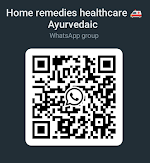 |
| Natural Remedies for Anemia |
Summary
Anemia is a situation characterized by a reduction in the number of red blood cells. Iron deficiency anemia, megaloblastic anemia, aplastic anemia, and many more types of anemia. The causes of the condition can be varied, such as parasitic infection, excessive menstrual bleeding, heavy blood loss due to pregnancy, and malnutrition. Anemia can cause fatigue, weakness, pale skin, and difficulty breathing. Diagnosis is made by hemoglobin and red blood cell count, stool test to rule out parasitic infection and bone marrow test in case of aplastic anemia. Treatment of anemia depends on its underlying cause and may include proper nutrition and iron supplementation in cases of nutritional deficiency anemia. Severe anemia is treated by whole blood transfusion. In cases of aplastic anemia or permanent anemia, a bone marrow transplant is usually the last resort. The outcome of anemia depends on the underlying cause, and since most causes can be treated, the outcome is good. If the cause is unclear, anemia can lead to complications such as premature birth, anemia in the newborn, low birth weight, seizures, and paralysis.
Natural remedies for anemia-Home remedies to increase red blood cells
You can overcome anemia by following some herbal supplements for anemia.
1) Use vitamin c in your diet
Anemia weakens your immune system. Anemia makes you more prone to infection or inflammation. This is why you need to increase the amount of vitamin c in your diet during this period. This allows the body to absorb the iron you get from your diet. Include citrus fruits in your diet to overcome anemia.
2) Use curd and turmeric like this
Taking curd and turmeric is a great ayurvedic treatment. If you are suffering from anemia then according to experts you should take a teaspoon of turmeric in a cup of curd twice a day. Which will help to increase the immunity of your body.
3) Increase green leafy vegetables in the meal
Herbal supplements for anemia- increasing the amount of spinach, celery, broccoli and other green and leafy vegetables in your diet will definitely help you. But eat these vegetables after washing and boiling them. Because raw leafy vegetables can affect your body's digestive system.
4) Drink plenty of water and fruit juices
You know that the body needs enough water. Because water flushes out toxins from your body. It is equally important to consume various types of vegetable and fruit juices in the diet. Juices of vegetables and fruits like beetroot, carrot, pomegranate, etc. Will replenish your body.
5) Drink water from a copper vessel
Water is life for the body. But the bowl you drink from is equally important. According to experts, drinking water from a copper pot gives iron to your body. For this, keep water in a copper vessel short-term and drink it while starving in the first part of the day.
6) Use sesame in diet
One of the most effective ways to increase the amount of iron in the diet is to eat sesame seeds. There are many good benefits of eating sesame, especially in anemia. For this, keep the sesame seeds soaked for two to three hours and divide them into a paste. Consuming this mixture with honey daily will boost iron levels naturally.
7) Black currants and dates
Both these dry fruits have a good combination of iron and vitamin C. So eating one date and four to five raisins daily will be beneficial for the body. You can eat this dry fruit when you wake up in the morning or in between meals.
8) Fenugreek leaves
Fenugreek leaves are the best herbal supplements for anemia and are rich in vitamins C and A, iron, calcium, and magnesium. So when you use fenugreek leaves in your diet it helps in reducing your anemia. You can take fenugreek leaf vegetables or juice in your diet. But if you are pregnant, consult your doctor before consuming this vegetable.
9) Fig
Figs are a great source of iron. It is also rich in vitamin c and magnesium. For this, eat fresh figs or dried figs soaked in water every day. Eating one to two figs daily during the day will boost iron levels naturally.
10) Banana
You all know that banana is a cheap and cool fruit. But not only this, eating bananas can also reduce your weakness. One banana contains many nutrients like iron, potassium, vitamin C, and folate. Which gives you quick energy. For this reason, make it a habit to eat one ripe banana every day.
Symptoms of anemia
As mentioned above, in anemia, the oxygen-carrying capacity of the blood is reduced. Thus, the following symptoms are also associated with this change:
1) Impotence
A sense of weakness is the most common symptom of anemia and feeling tired without significant movement.
2) Difficulty breathing
One of the most obvious symptoms of anemia is difficulty breathing or trying to breathe.
3) Restlessness
Sometimes we experience a lack of feeling of well-being or unexplained malaise, which may be due to anemia.
4) Dizziness
Dizziness can never be ignored as it can lead to injuries such as falls. This can be caused by low oxygen supply to your brain.
5) Lack of productivity
You are not able to exercise, work or study that you could easily do before. It can also lead to a persistent lack of concentration or focus in work.
6) Headache
Headache is a rare symptom of anemia with mild to moderate pain.
7) Crops
Eating or having a strong appetite for foods such as chalk, ice, and clay is known as pica. This sensation is associated with anemia but is rarely seen.
Causes of anemia
Anemia
This can often be a major cause of anemia. Anemia or low blood volume causes your body to lack iron, which makes you feel weak. Anemia can have serious consequences. Often a serious accident, surgery, childbirth, or blood clots due to an accident can reduce the amount of blood in your body.
Excessive intake of iron
Many people sometimes take iron supplements to increase iron levels. If there is too much iron in the body, it becomes difficult for the body to absorb the amount of iron in the blood. This makes the body unable to absorb iron. This causes the body to experience iron deficiency and anemia.
Excessive menstrual bleeding
Everyone has to face menstrual problems. Sometimes, some physical changes lead to heavy menstrual bleeding. Which can make you weak.
Childbirth
During pregnancy, women's body weight and amniotic fluid increase. Bleeding begins during childbirth. If this bleeding is excessive, the woman is more likely to develop weakness or anemia.
Iron deficiency
Iron deficiency anemia is caused by low levels of iron in your body. In fact, your body needs iron for adequate bone growth and normal bodily function. But if you don't get enough iron from your diet, you can develop anemia. Sometimes some medicines, food, caffeine, and frequent blood donation can also cause iron deficiency.
Internal bleeding
Sometimes an accident or injury causes internal bleeding in the body. Which makes you prone to anemia due to anemia.
General considerations in the treatment of anemia:
Take iron, vitamin b12, and folic acid supplements as directed by your doctor.
Iron-rich foods for anemia e.G. Green leafy vegetables, fresh fruits, eggs, meat, fish, etc. To take eat adequate amounts of vitamin-rich citrus fruits eg. Lemon, orange, mango, etc. Also, vitamin C supplements are readily available that will help you in boosting iron levels naturally.
However, consult your doctor to know the right dosage according to your age and body weight.
Albendazole tablets should be given once every six months to kill stomach worms in children.
Even in the absence of anemia, adolescent boys and girls and pregnant women should be given iron and folic acid supplements.
Treatment according to the type of anemia:
For mild anemia, doctors may advise you to take iron-rich foods for anemia and folic acid.
For moderate forms of anemia, doctors prescribe iron and folic acid supplements.
If you don't have symptoms and can tolerate oral iron without side effects like gastrointestinal intolerance (which can cause diarrhea), it will work especially well. If oral iron therapy is not tolerated, your doctor may start giving injections, which usually do not require hospitalization, and you can go home with one dose and return for another.
In case of severe anemia, depending on your overall health, the doctor may choose to give iron by injection or advise hospitalization to check vital signs like pulse, blood pressure, and breathing. Also, sometimes artificial respiration may be required.
Blood transfusion
Blood transfusion is an option of choice in severe anemia and conditions like sickle cell anemia and thalassemia.
Bone marrow transplant
Bone marrow is a fibrous tissue that forms blood cells in long cells. In conditions such as aplastic anemia, there is a bone disorder or dysfunction and blood cells are not produced. Therefore, bone marrow from a healthy donor can be surgically transplanted into a person.
Erythropoietin
It is a hormone in the kidney that is essential for the production of blood cells. It can be used to treat anemia in people who are unable to produce erythropoietin due to kidney failure.
Splenectomy
The spleen is a small organ near the stomach, which is important for destroying old red blood cells as well as making new red blood cells. the lifespan of Red blood is 120 days. In people with anemia, sometimes red blood cells are likely to be too large in the spleen. In such cases, surgical removal of the spleen (splenectomy) is the treatment of choice.
Treatment of anemia in pregnancy:
In mild anemia with a hemoglobin level of 9-11 g/dl, your doctor may prescribe you daily oral iron and folic acid tablets and ask you to repeat the laboratory test after a month to check if there is any improvement.
In moderate anemia with a hemoglobin level of 7-9 g/dl, your doctor may try to find the cause first and then start treatment with oral iron and folic acid tablets. A monthly evaluation is done to check if the hemoglobin level reaches between 8-9 g/dl. Your doctor may give you iron supplements by injection and then back to oral supplements until your hemoglobin level reaches 9 g/dl.
In severe anemia with a hemoglobin level below 7 g/dl, your doctor must quickly find the cause of such a low level and start iron supplements by injection immediately. If the due date is too close or the level is too low, the doctor may also recruit you for a blood transfusion.
Lifestyle management
Anemia can be effectively managed by making some simple lifestyle changes,eg.
1) Avoid using tobacco
Tobacco can affect iron absorption and metabolism, which can lower iron levels in the body and lead to iron deficiency. Therefore, avoiding tobacco use can prevent anemia.
2) Avoid tea with food
Tea can decrease iron absorption, so avoiding tea with meals helps iron absorption.
3) Consume an iron-rich diet
By consuming iron-rich foods for anemia like green leafy vegetables, fresh fruits, cow's milk, eggs, fish and meat, adequate iron stores are maintained in the body.
FAQ's
1. Can you overcome anemia with lifestyle changes?
Only your doctor can guide you in this regard. Because the cause of your anemia determines the treatment you need.
2. When to start treatment in case of anemia?
Everyone's anemia and its treatment can be different. Usually, treatment from the same month after the onset of anemia can be beneficial.
3. Are there any side effects of treatment for anemia?
The side effects you experience depend on what treatment you are taking. So be sure to discuss this with your doctor while taking medical treatment.





















0 Comments